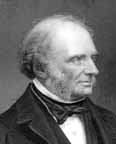Lord John Russell was born on 8 August 1792 and was the third son of the sixth Duke of Bedford. He was educated at Westminster School and the University of Edinburgh. He entered Parliament in 1813 as the MP for Tavistock and during the 1820s he was a persistent advocate of extending the franchise and granting political equality to Roman Catholics. His support of parliamentary reform won the Whigs a great deal of support in the 1830 General Election although the Duke of Wellington formed the ministry which lasted only until November 1830.
Russell was Paymaster General in Earl Grey's Whig ministry of 1830-1834 and was one of the four members of the government who was made responsible for the drafting of the Reform Bill (1832) which doubled the British electorate. It was Russell who proposed the legislation to parliament and who was responsible for steering it through the House of Commons. On the third attempt to push the legislation through parliament, Russell was the only man who knew of the Bill's contents: he was still trying to dry the ink on the proposals when he entered the House of Commons. In November 1834 he resigned along with the Prime Minister, Lord Melbourne, and sat on the Opposition Front Bench during Peel's first ministry
Following Peel's downfall, thanks to the Lichfield House Compact, Russell rejoined Melbourne's government and became Home Secretary from 1835 to 1839 and Secretary for War and the Colonies from 1839 to 1841. He was also Leader of the House of Commons during this time. In the General Election of 1841, which the Conservatives won, Russell was returned as MP for the City of London which he represented until he was elevated to the House of Lords in 1861.
Immediately after the repeal of the Corn Laws Peel resigned and Russell became Prime Minister at the head of a Whig administration. During this first premiership (1846-1852), he helped pass legislation limiting working hours in factories in the 1847 Factory Act and was responsible for the passing of the Public Health Act of 1848. This ministry also ended restrictions on colonial trade by repealing the Navigation Acts in 1849.
His government's efforts to prevent widespread starvation as a result of the Irish famine of 1846-1847 were ineffective. Russell's alternate support for and dissent from Aberdeen's government policies during the Crimean War (1854-46) caused him to lose the leadership of the Liberal party to Viscount Palmerston.
As foreign secretary (1859-1865) under Palmerston, he supported Italian Unification and antagonised the United States during the American Civil War by actions that seemed to favour the Confederacy. He retired from political office after briefly heading a second ministry in 1865-1866 but continued to sit in the House of Lords where he spoke on a variety of issues until he died on 28 May 1878.

Last modified April 1997
